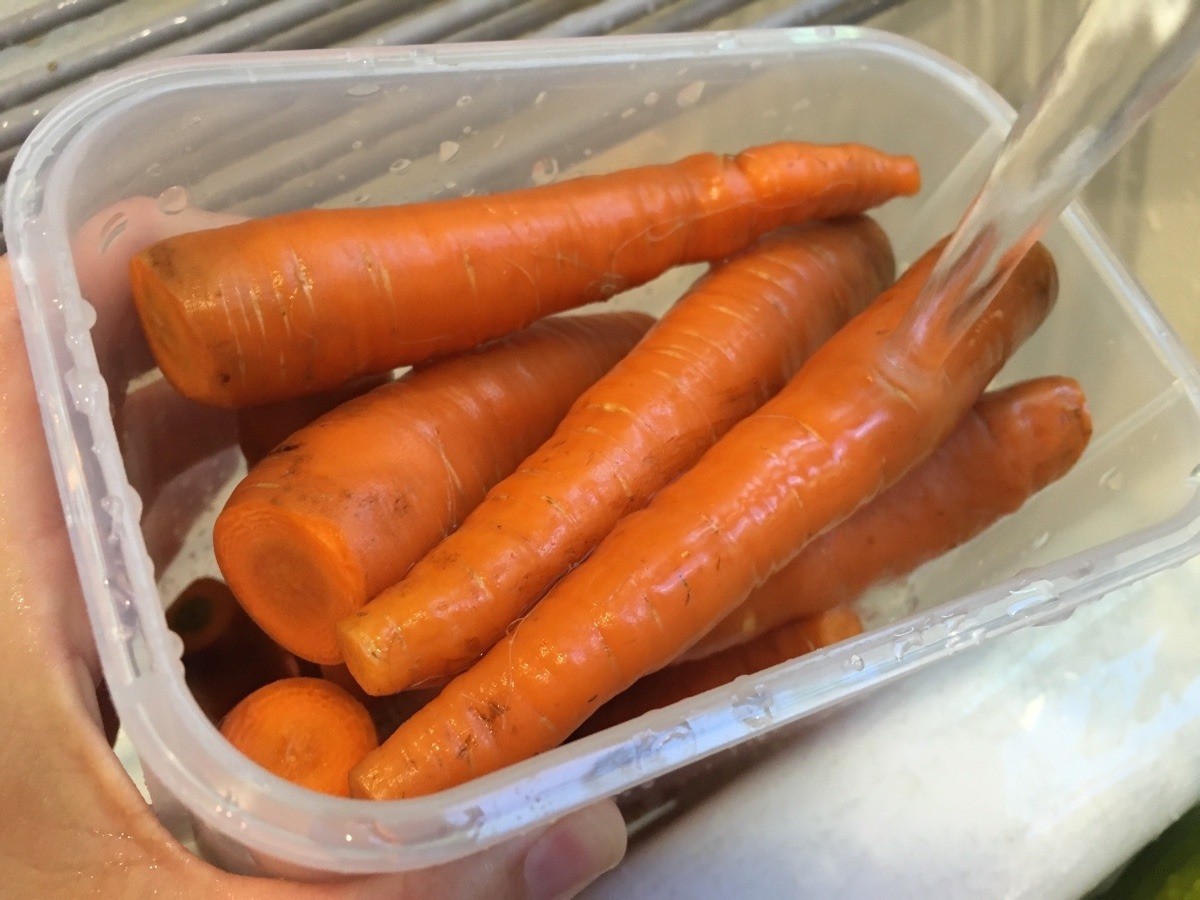

Articles
How To Store Carrots In The Fridge
Modified: October 21, 2024
Learn how to store carrots in the fridge properly to keep them fresh and crisp for longer. Check out our informative articles for useful tips and tricks.
(Many of the links in this article redirect to a specific reviewed product. Your purchase of these products through affiliate links helps to generate commission for Storables.com, at no extra cost. Learn more)
Introduction
Carrots are a versatile and nutritious vegetable that can be enjoyed in a variety of dishes, from soups and salads to stir-fries and side dishes. But when you bring home a large bunch of fresh carrots, you may find yourself wondering how to store them properly to maintain their freshness and flavor. The good news is that storing carrots in the fridge is a simple and effective way to extend their shelf life and keep them crisp and tasty for longer.
In this article, we will explore the reasons why storing carrots in the fridge is beneficial, guide you on how to choose the right carrots for storage, provide step-by-step instructions on preparing and storing carrots in the fridge, and offer useful tips to help extend the shelf life of your carrots. Additionally, we will discuss how to check the freshness of stored carrots and provide suggestions on various ways to use them to minimize waste.
By following the guidelines and tips in this article, you can ensure that your carrots remain fresh, vibrant, and ready to use whenever you need them. So let’s dive in and discover the best practices for storing carrots in the fridge!
Key Takeaways:
- Keep your carrots fresh and flavorful by storing them in the fridge. This simple step extends shelf life, retains nutrients, and preserves their natural sweetness and crunchiness.
- Choose, prepare, and store your carrots with care to ensure maximum freshness. Follow storage guidelines, use them in a timely manner, and minimize waste for a satisfying culinary experience.
Read more: How To Store Carrot Sticks In The Fridge
Why Should You Store Carrots in the Fridge?
Storing carrots in the fridge offers several advantages over leaving them at room temperature. Here are some of the main reasons why refrigerating carrots is recommended:
- Extended Shelf Life: Carrots have a relatively long shelf life, but refrigeration can further extend their freshness. The cool temperature of the fridge slows down the natural process of spoilage, keeping the carrots crisp and flavorful for a longer period.
- Retained Nutritional Value: Carrots are packed with essential vitamins and minerals, such as vitamin A, vitamin K, and potassium. Storing them in the fridge helps to preserve these nutrients, ensuring that you’re getting the maximum health benefits when you consume them.
- Prevention of Softening and Browning: Carrots stored at room temperature tend to soften and become limp over time. Refrigeration helps to maintain their firmness and crunchiness. It also prevents them from browning, which can occur when the carrots are exposed to air for extended periods.
- Minimization of Mold and Bacterial Growth: Keeping carrots in a cool environment like the fridge helps prevent the growth of mold and bacteria. These microorganisms thrive in warm and humid conditions, which can lead to spoilage and potential health risks. Refrigeration provides an inhospitable environment for such growth.
- Flavor Preservation: Properly stored carrots retain their natural sweetness and flavor. The cold temperature of the fridge helps to preserve the taste profile of carrots, allowing you to enjoy their fresh and delicious flavor when using them in your favorite recipes.
Overall, refrigerating carrots is a great way to ensure their longevity, maintain their nutritional value, and preserve their taste and texture. It’s a simple step that can make a significant difference in how long your carrots stay fresh and flavorful.
Choosing the Right Carrots for Storage
When it comes to storing carrots in the fridge, selecting the right carrots is an important first step. Here are some tips to help you choose the best carrots for storage:
- Look for Fresh Carrots: Opt for carrots with vibrant orange color and firm texture. Avoid carrots that are soft, discolored, or have any signs of mold or spoilage.
- Choose Whole Carrots: Whole carrots tend to store better than pre-cut or baby carrots. The intact skin provides a protective barrier against moisture loss, helping to keep the carrots fresh and crunchy.
- Avoid Carrots with Tops: Carrots with their green tops still attached may appear fresher, but they tend to lose moisture and become limp more quickly. It’s best to remove the tops before storing the carrots in the fridge.
- Organic vs. Non-organic: If possible, choose organic carrots. They are free from synthetic pesticides and have a higher likelihood of being fresher and more flavorful. However, non-organic carrots can still be stored in the fridge using the same methods.
- Consider the Size: While there is no strict rule, smaller to medium-sized carrots generally store better than large carrots. Smaller carrots have a higher skin-to-flesh ratio, which helps to retain moisture and maintain their texture. However, this may vary depending on the specific variety of carrots.
By keeping these points in mind, you can select the best quality carrots that are well-suited for storage. Remember, the quality of the carrots you choose initially will greatly impact their freshness and longevity during refrigeration.
Preparing Carrots for Refrigeration
Properly preparing carrots before storing them in the fridge is essential for maintaining their freshness and quality. Follow these steps to prepare your carrots for refrigeration:
- Trim the Tops: If your carrots still have their green tops attached, trim them off. The tops draw moisture away from the carrots, causing them to wilt faster. Use a sharp knife or pruning shears to cut off the tops just above the carrot crown.
- Gently Wash the Carrots: Rinse your carrots under cool running water to remove any dirt or debris. Use a vegetable brush to gently scrub the carrots, especially if they have stubborn dirt or root remnants. Avoid using soap or detergent as it can leave a residue and affect the flavor of the carrots.
- Allow the Carrots to Dry: After washing, pat the carrots dry with a clean kitchen towel or paper towels. Excess moisture can lead to premature spoilage, so it’s important to ensure the carrots are completely dry before storing them in the fridge.
- Leave the Skin Intact: It is generally recommended to leave the skin of the carrots intact before refrigeration. The skin acts as a protective barrier, preventing moisture loss and maintaining the crispness of the carrots. However, if your preference is to peel the carrots, you can do so before storing them.
- Consider Slicing or Dicing: Depending on your culinary needs, consider slicing, dicing, or cutting the carrots into sticks before refrigerating them. This can make it more convenient to use the carrots in various recipes. However, remember that sliced or diced carrots may dry out faster, so it’s important to store them properly to prevent moisture loss.
By properly preparing your carrots for refrigeration, you can ensure that they stay fresh, crisp, and ready to use whenever you need them. Taking the time to prepare the carrots before storing them will contribute to their longevity in the fridge.
Storing Carrots in the Fridge
Once you have prepared your carrots, it’s time to store them in the fridge. Here are the steps to follow for proper carrot storage:
- Choose the Right Storage Container: Select a storage container that is clean and spacious enough to hold your carrots comfortably. You can use a plastic bag, airtight container, or a vegetable storage bag. Make sure the container has proper ventilation to prevent moisture buildup.
- Add Moisture: Carrots require some moisture to stay crisp in the fridge. To provide this moisture, you can place a damp paper towel or a clean, damp cloth in the storage container along with the carrots. The dampness will help keep the carrots hydrated, preventing them from drying out.
- Arrange the Carrots: Place the prepared carrots in a single layer in the storage container. If you have a large quantity of carrots, you can separate them into smaller batches to prevent them from being overcrowded. Overcrowding can lead to uneven air circulation and faster spoilage.
- Seal the Container: If using a plastic bag, seal it tightly, squeezing out as much air as possible. If using an airtight container, secure the lid firmly. This will help maintain the proper humidity levels and prevent the carrots from drying out in the fridge.
- Store in the Correct Zone: Place the container of carrots in the crisper drawer of your refrigerator. The crisper drawer provides a slightly higher humidity level than the rest of the fridge, which is ideal for preserving the freshness of the carrots.
By following these storage guidelines, your carrots should stay fresh and crisp for an extended period in the refrigerator. Remember to check the carrots periodically for any signs of spoilage or decay and remove any affected carrots to prevent them from affecting the others.
To store carrots in the fridge, remove the leafy tops, place them in a plastic bag with a paper towel to absorb moisture, and store in the vegetable crisper. This will help keep them fresh for up to a few weeks.
Read more: How To Store Carrots
Tips for Extending Carrot Shelf Life
To maximize the shelf life of your stored carrots and keep them fresh for as long as possible, consider the following tips:
- Keep the Carrots Dry: Moisture can lead to spoilage, so it’s crucial to keep the carrots as dry as possible. Replace the damp paper towel or cloth in the storage container if it becomes excessively moist.
- Minimize Temperature Fluctuations: Avoid placing the storage container of carrots near the fridge door or in areas where the temperature is likely to fluctuate. Fluctuating temperatures can accelerate the decay process and reduce the shelf life of the carrots.
- Don’t Wash the Carrots in Advance: While it’s important to wash the carrots before storing them, avoid washing them too far in advance. Moisture can encourage the growth of mold and bacteria, so it’s best to wash them shortly before storage.
- Avoid Storing with Ethylene-Producing Fruits: Some fruits, such as apples and bananas, produce a gas called ethylene that accelerates the ripening process in vegetables. Keep the carrots away from ethylene-producing fruits to prevent them from becoming soft or spoiling prematurely.
- Use the Coldest Part of the Fridge: If your fridge has multiple compartments with varying temperature settings, store the carrots in the coldest part of the fridge. This will help maintain their freshness and crispness.
- Rotate Carrots Regularly: If you have multiple batches of carrots stored, remember to rotate them regularly. Use the older carrots first to minimize waste and ensure that none of them go bad unnoticed.
- Avoid Overstocking: Only store the amount of carrots that you will realistically use within a reasonable time frame. Overstocking can lead to overcrowding and inadequate air circulation, which can increase the chances of spoilage.
By implementing these tips, you can significantly extend the shelf life of your stored carrots and enjoy their freshness and flavor for a longer duration.
Checking Carrots for Freshness
Checking the freshness of your stored carrots is essential to ensure that they are still safe to consume and retain their optimal flavor. Here are some ways to determine if your carrots are still fresh:
- Visual Inspection: Look for any visible signs of spoilage, such as mold, discoloration, or a slimy texture. Fresh carrots should have a vibrant orange color and appear firm and smooth.
- Sniff Test: Give the carrots a quick sniff. Fresh carrots should have a mild, sweet aroma. If they have a foul or unpleasant odor, it is an indication that they have started to spoil.
- Squeeze Test: Gently squeeze the carrots. Fresh carrots should feel firm and rigid. If they feel soft or mushy, it’s a sign that they have begun to decay and should be discarded.
- Taste Test: If the carrots pass the visual, sniff, and squeeze tests, you can also do a taste test. Take a small bite and assess the flavor and texture. Fresh carrots should have a crisp and sweet taste. Any off flavors or a waterlogged texture are indicators of spoilage.
- Check the Storage Conditions: Assess the storage conditions of the carrots. If there is excessive moisture in the container or signs of mold growth, it’s likely that the carrots have deteriorated and should be discarded.
It’s important to note that even with proper storage, carrots can still spoil over time. If you notice any signs of spoilage, it’s best to discard the affected carrots to prevent any contamination or foodborne illness.
In general, stored carrots can remain fresh for several weeks, but their freshness will eventually decline. By regularly checking the carrots for freshness and using them within a reasonable timeframe, you can enjoy the best flavor and quality of the carrots.
Using Stored Carrots and Avoiding Waste
Stored carrots can be used in a variety of delicious dishes and can add a nutritious boost to your meals. Here are some ideas on how to use stored carrots and avoid wasting them:
- Cooked Dishes: Add sliced or diced carrots to soups, stews, and curries for a touch of sweetness and crunch. They can also be roasted alongside other vegetables for a flavorful side dish.
- Salads and Slaws: Shred or grate the carrots and incorporate them into salads and slaws for added color, texture, and nutrients. Carrots provide a refreshing and crunchy element that complements a variety of salad ingredients.
- Snacks and Appetizers: Enjoy carrot sticks with your favorite dip, such as hummus or ranch dressing. Carrot sticks can also be baked or air-fried until crispy and used as a healthier alternative to potato chips.
- Baked Goods: Use grated carrots in baking recipes like carrot cake, muffins, or bread. The natural sweetness and moisture of carrots can enhance the flavor and texture of these treats.
- Juices and Smoothies: Extract the juice of fresh carrots and incorporate it into your favorite juice blends or smoothies. Carrot juice is not only delicious but also provides a wealth of vitamins and antioxidants.
- Freezing Carrots: If you have an abundance of carrots and fear that you won’t be able to use them before they spoil, consider freezing them. Blanch the carrots by boiling them briefly, then plunge them into ice water to stop the cooking process. Pat them dry and pack them in airtight freezer bags. Frozen carrots can be used in cooked recipes later on.
- Composting: If your carrots have gone bad and are unsuitable for consumption, consider composting them. Carrots, along with other kitchen scraps, can be added to a compost pile or bin to create nutrient-rich soil for gardening.
By incorporating stored carrots into your meals and being mindful of their usage, you can minimize waste and fully enjoy the benefits of these nutritious vegetables.
Remember to check your stored carrots periodically to ensure their freshness and quality. Use them in a timely manner to make the most of their flavor and nutritional value.
Conclusion
Storing carrots in the fridge is a practical and effective way to prolong their freshness and enjoy their crisp texture and vibrant flavor for an extended period. By following the steps outlined in this article, including choosing the right carrots, preparing them properly, and storing them in the fridge with a little moisture, you can ensure that your carrots stay fresh and delicious.
Refrigeration helps to extend the shelf life of carrots, retain their nutritional value, prevent softening and browning, and minimize the growth of mold and bacteria. It also preserves the natural sweetness and flavor of carrots, enhancing your culinary experience when using them in a variety of dishes.
To optimize the shelf life of your stored carrots, it’s important to practice good storage habits, such as keeping them dry, avoiding temperature fluctuations, and checking them periodically for signs of spoilage. By doing so, you can minimize waste and make the most of your stored carrots.
Whether you use carrots in savory cooked dishes, refreshing salads, nourishing juices, or tasty baked goods, stored carrots offer versatility and a nutritional boost to your meals. And even if you have more carrots than you can use, freezing or composting them ensures that they don’t go to waste.
So, the next time you bring home a bunch of fresh carrots, remember the importance of proper storage in the fridge. By following the guidelines and tips provided, you can enjoy the benefits of these nutritious and delicious vegetables for longer periods, while minimizing waste and ensuring a satisfying culinary experience.
Frequently Asked Questions about How To Store Carrots In The Fridge
Was this page helpful?
At Storables.com, we guarantee accurate and reliable information. Our content, validated by Expert Board Contributors, is crafted following stringent Editorial Policies. We're committed to providing you with well-researched, expert-backed insights for all your informational needs.
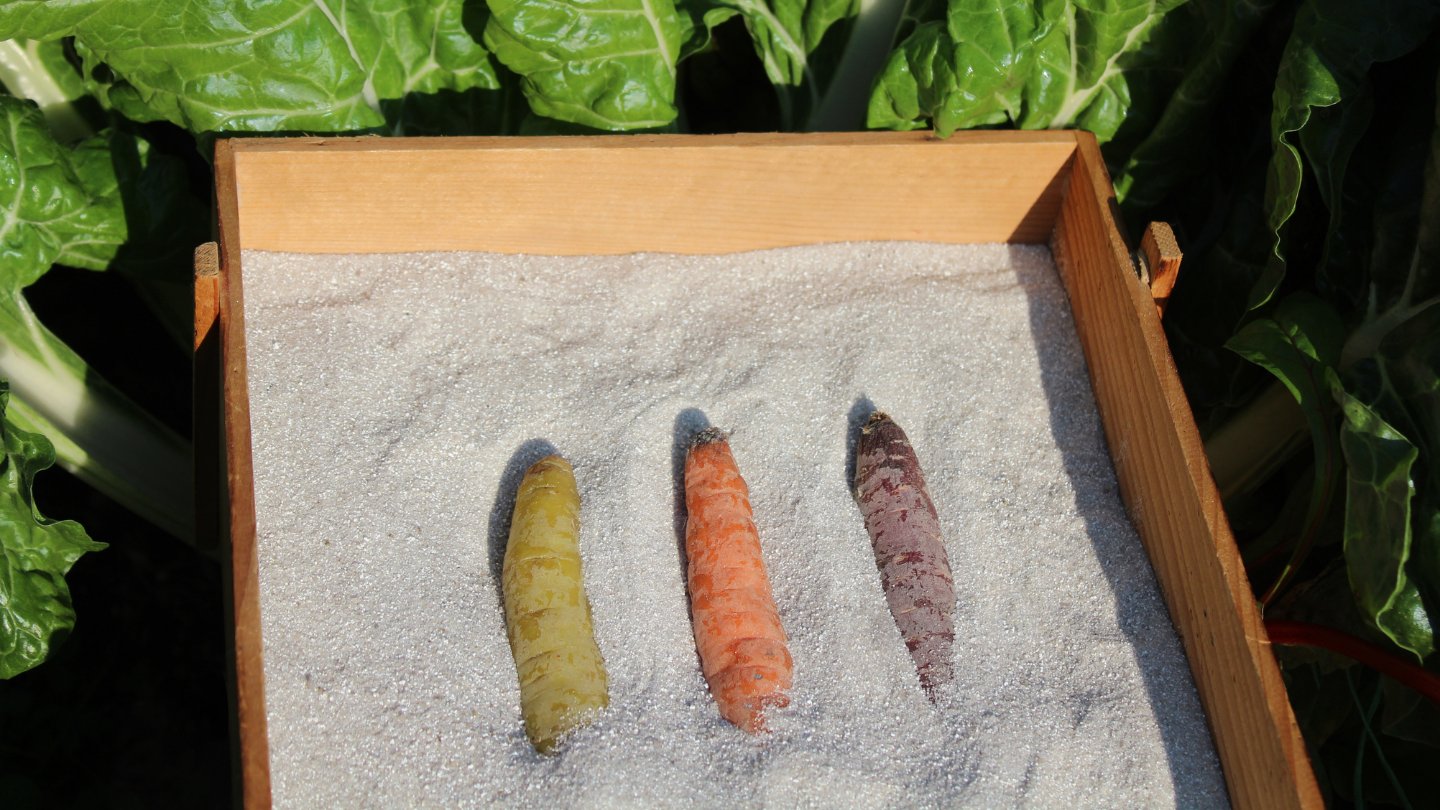
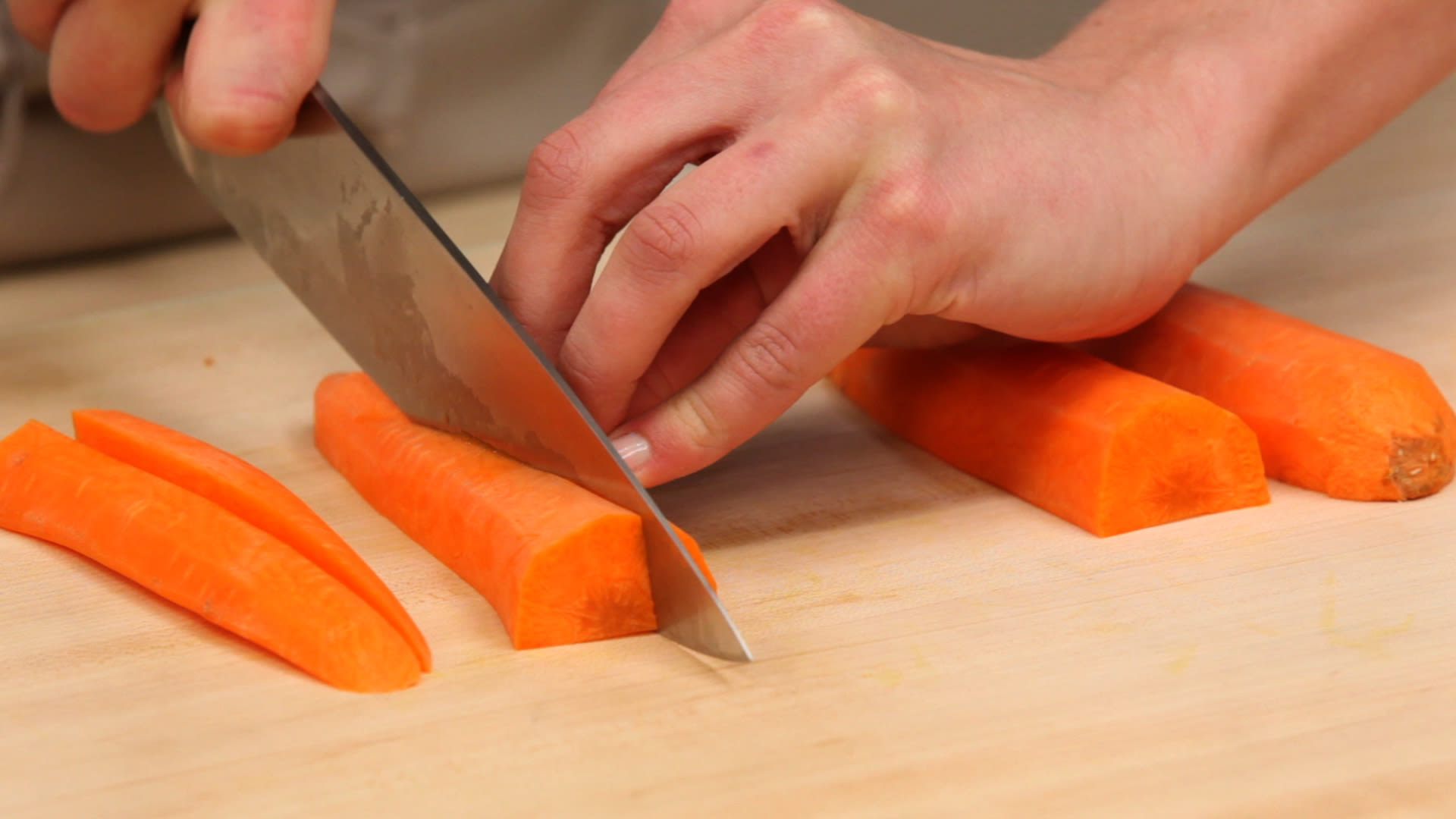
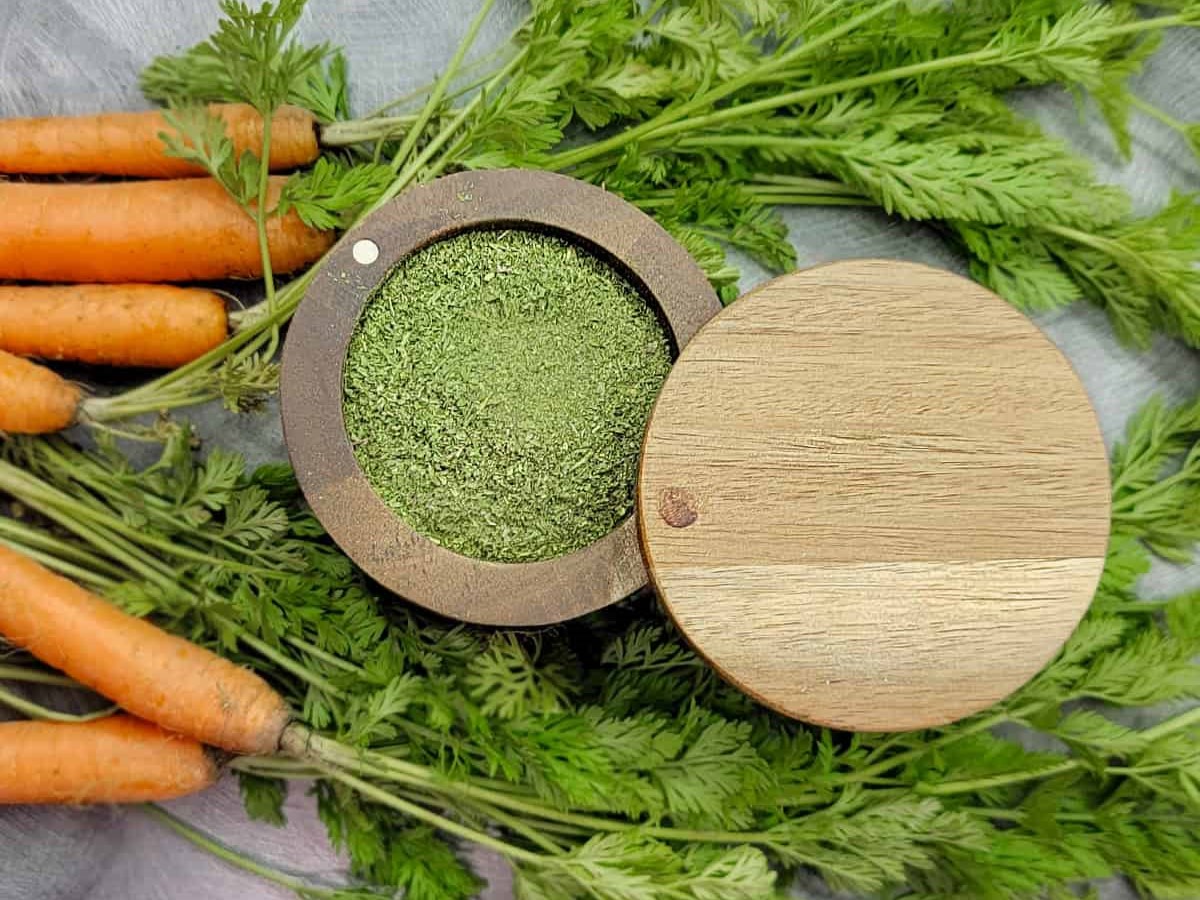
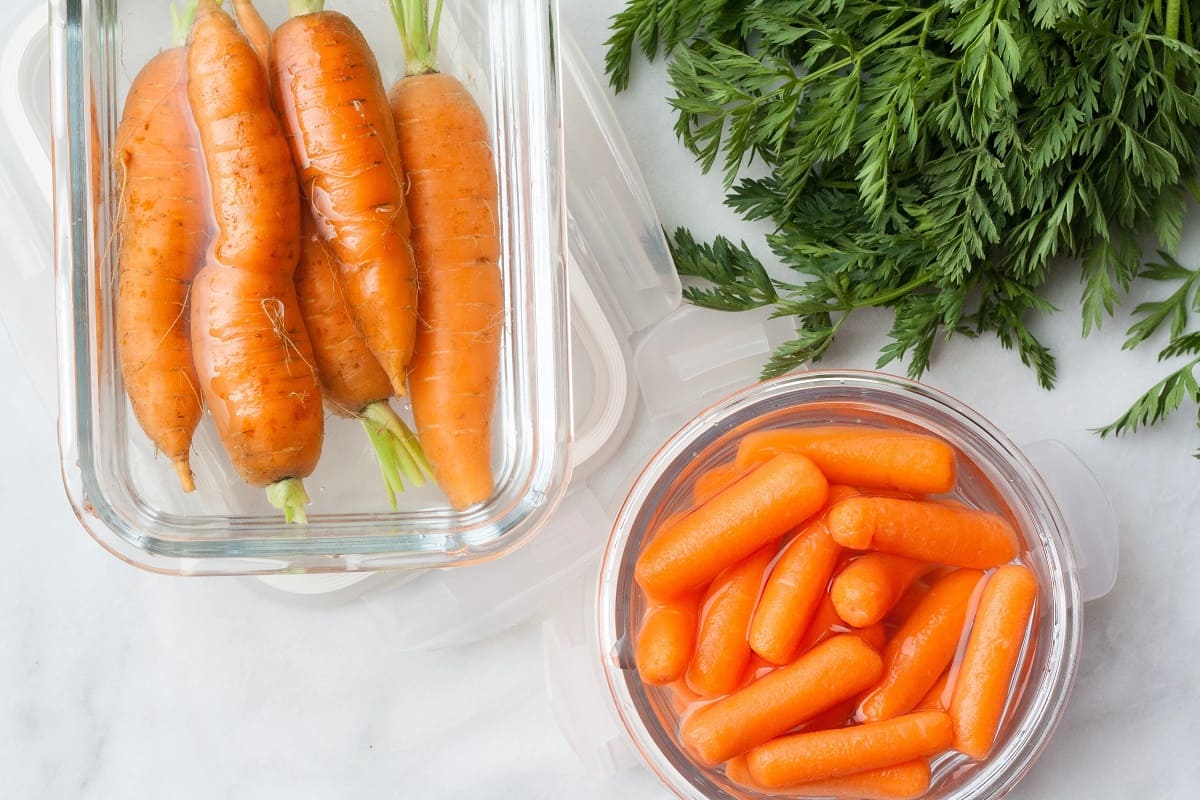
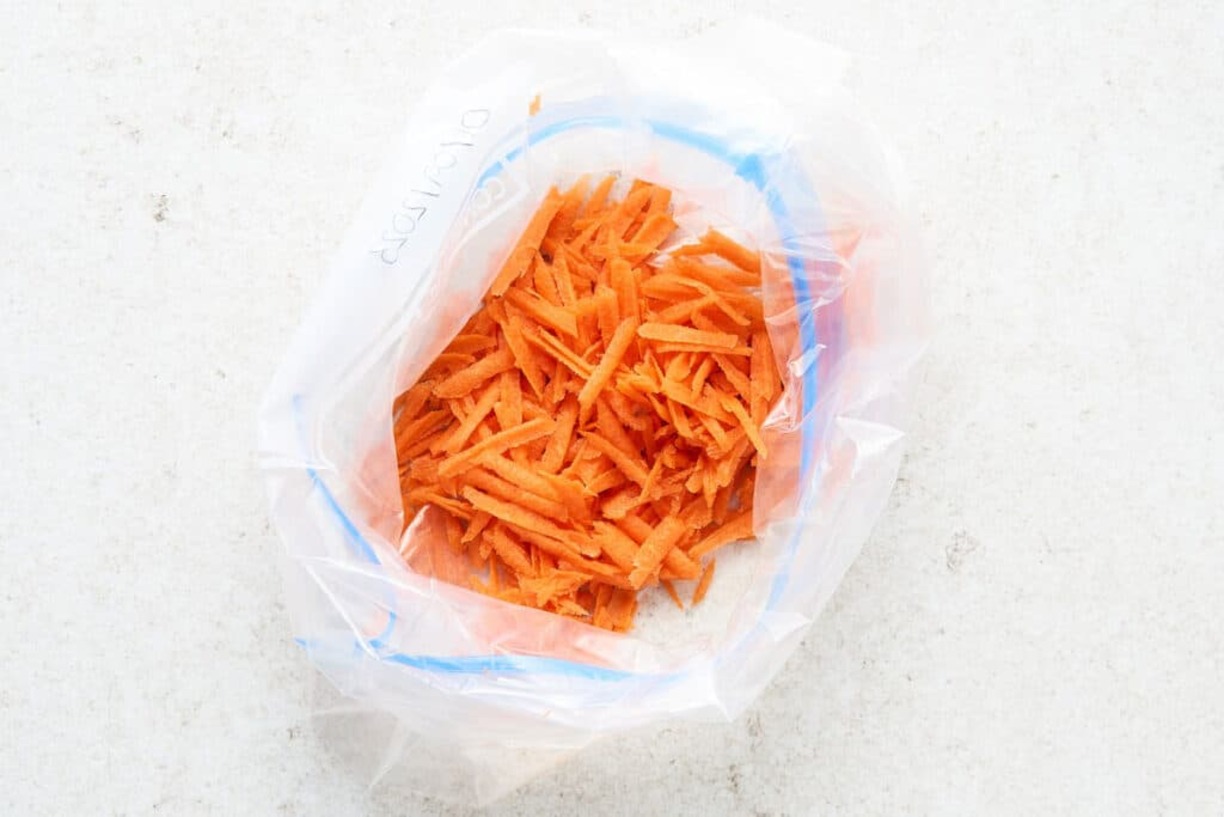
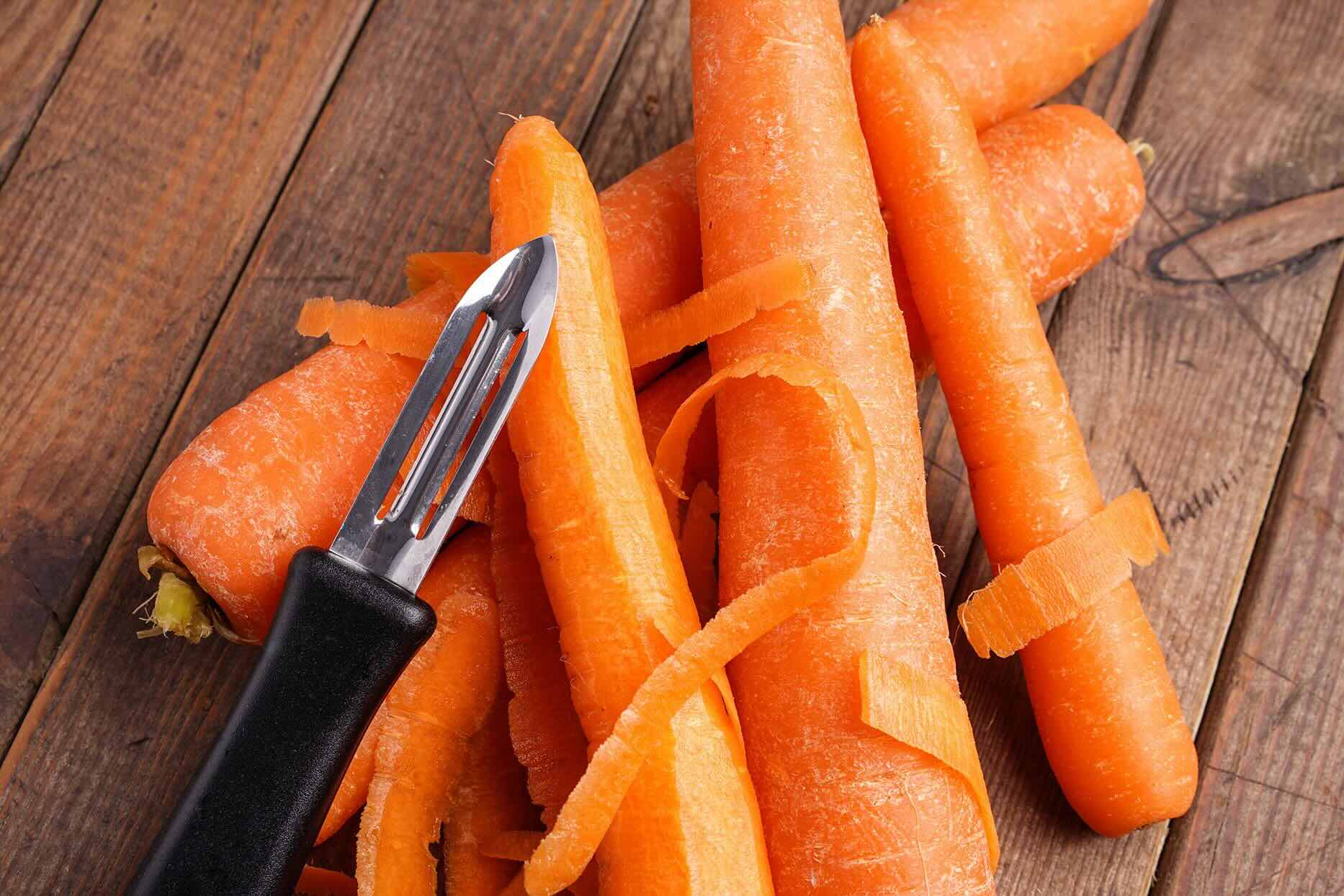
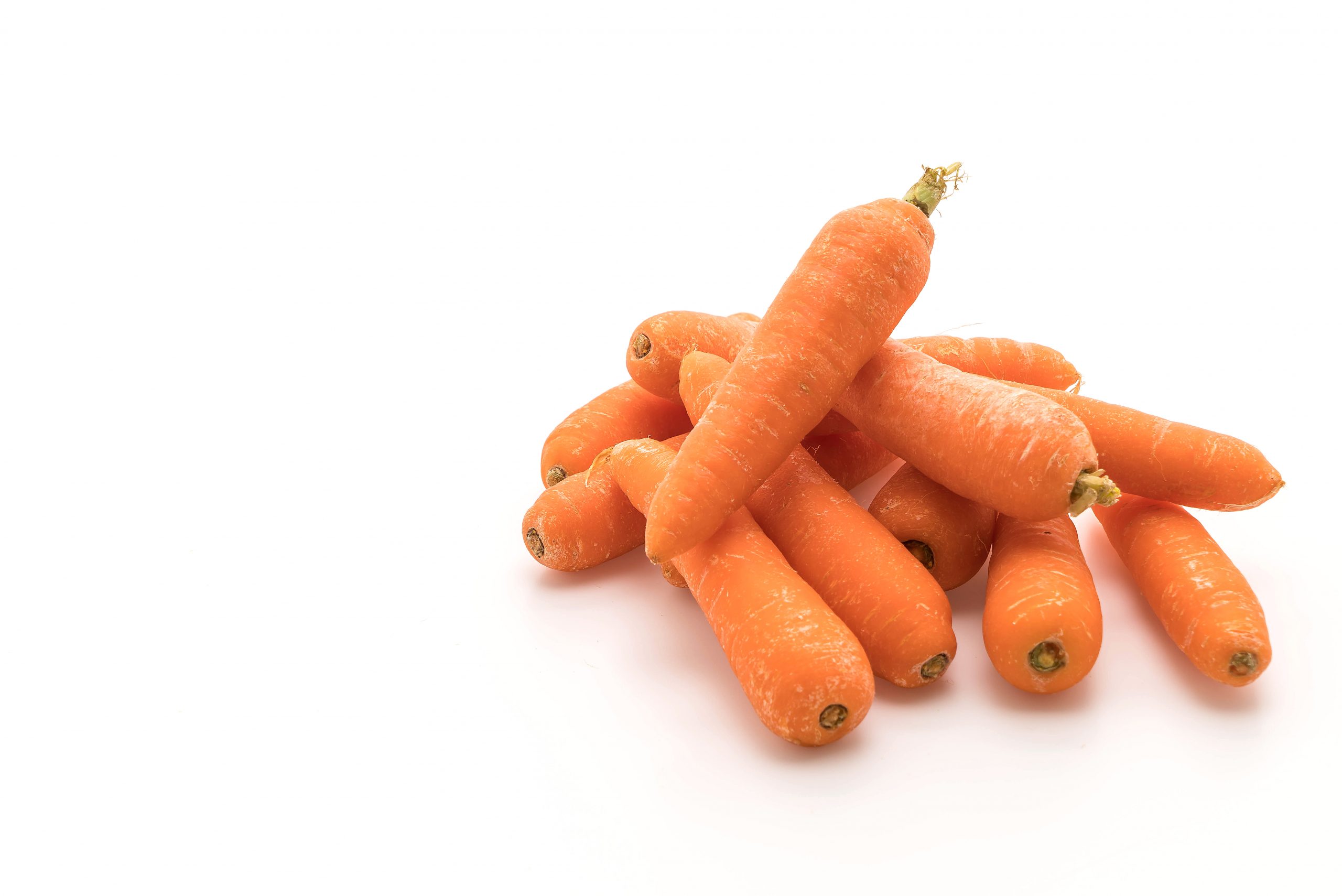
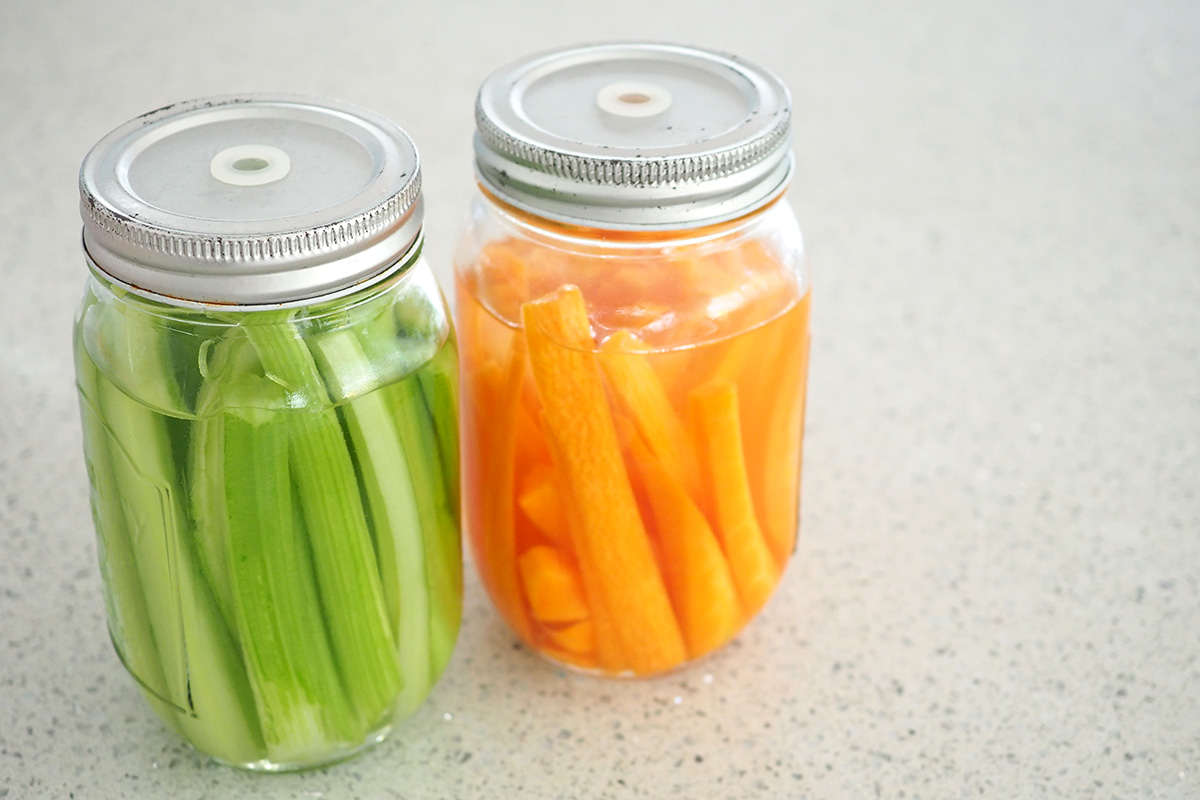

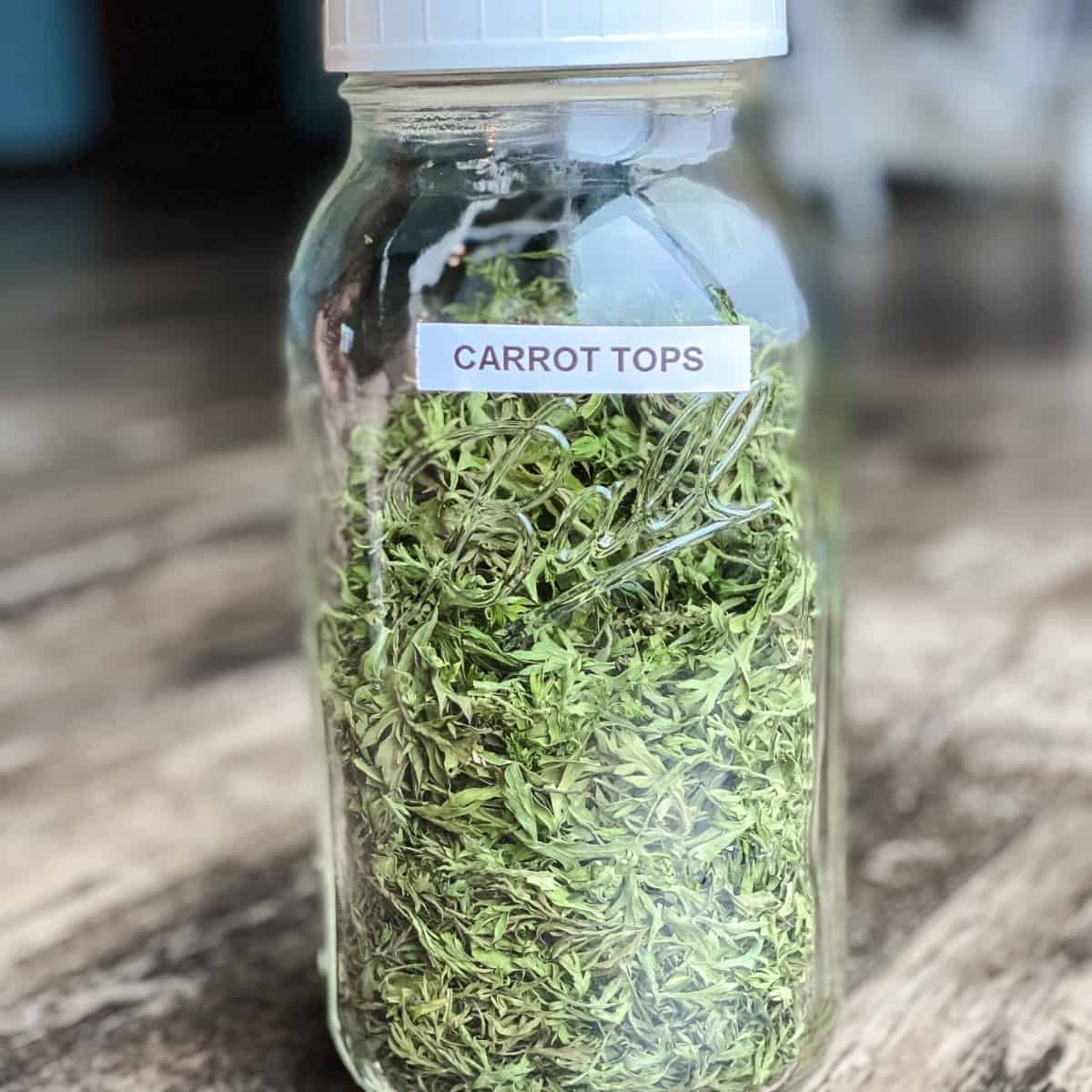
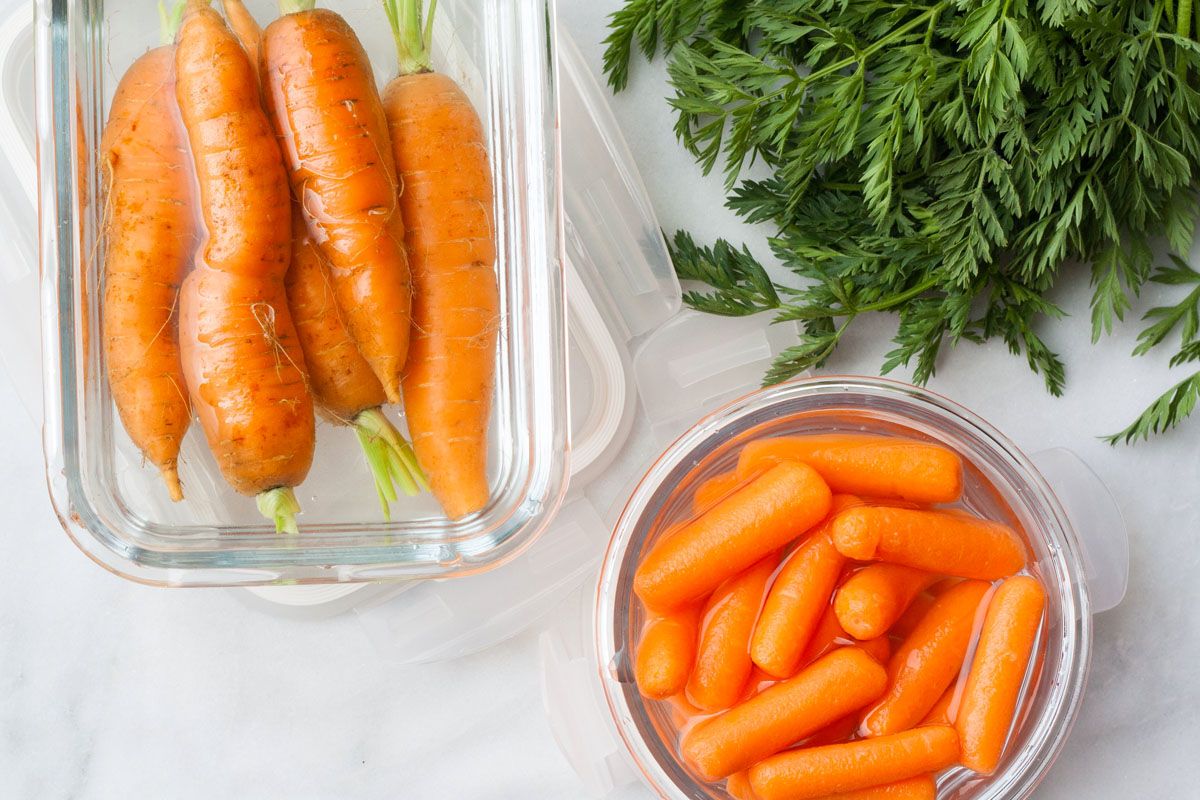
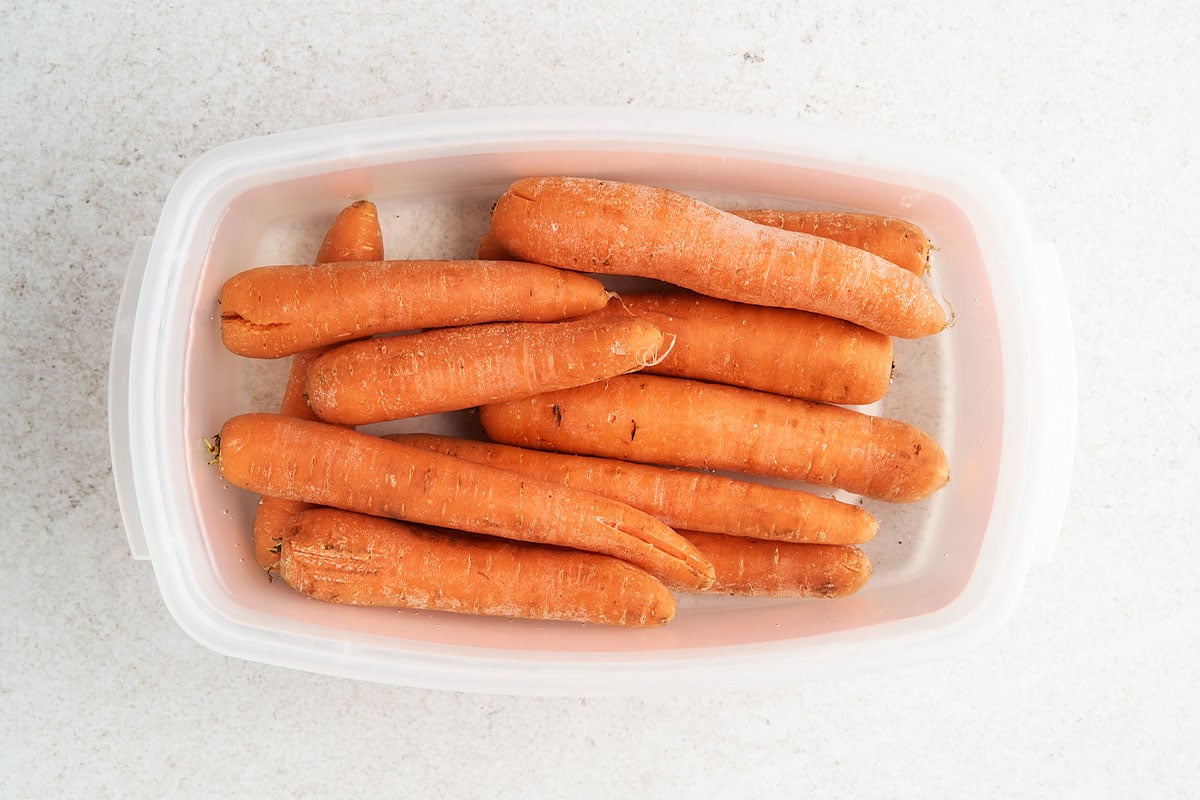
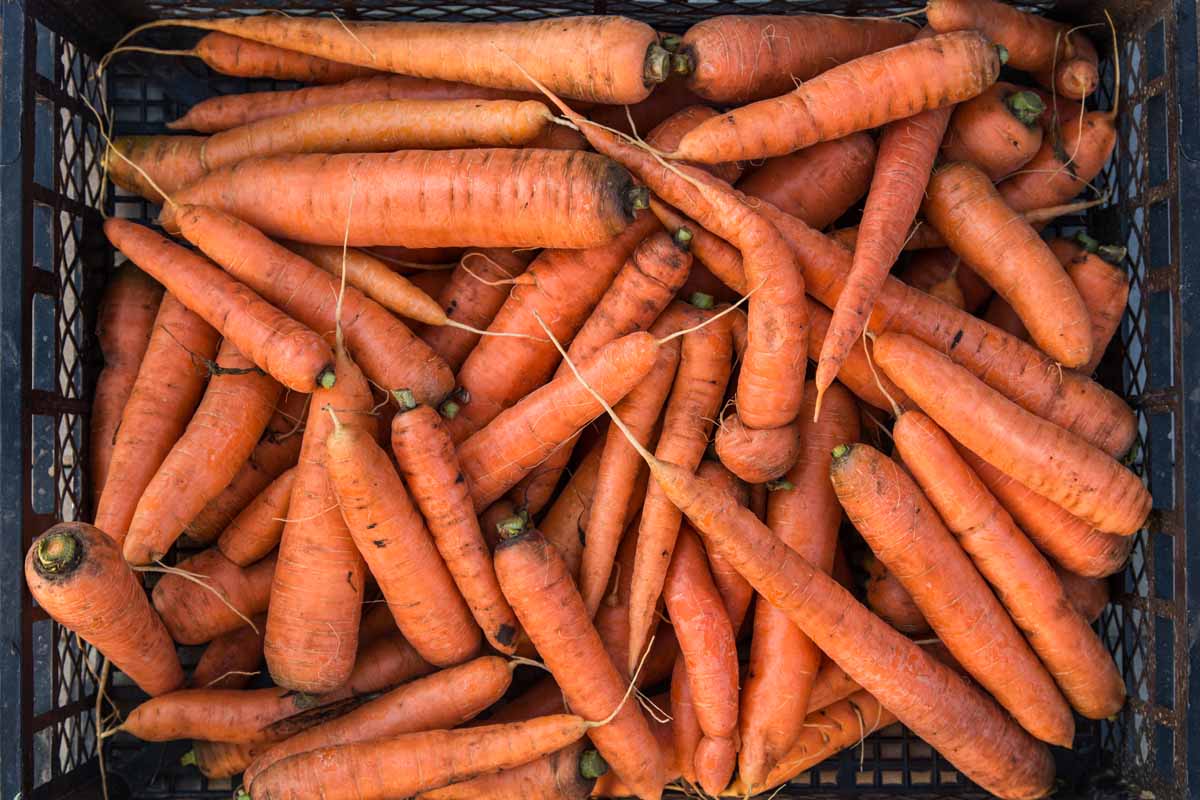
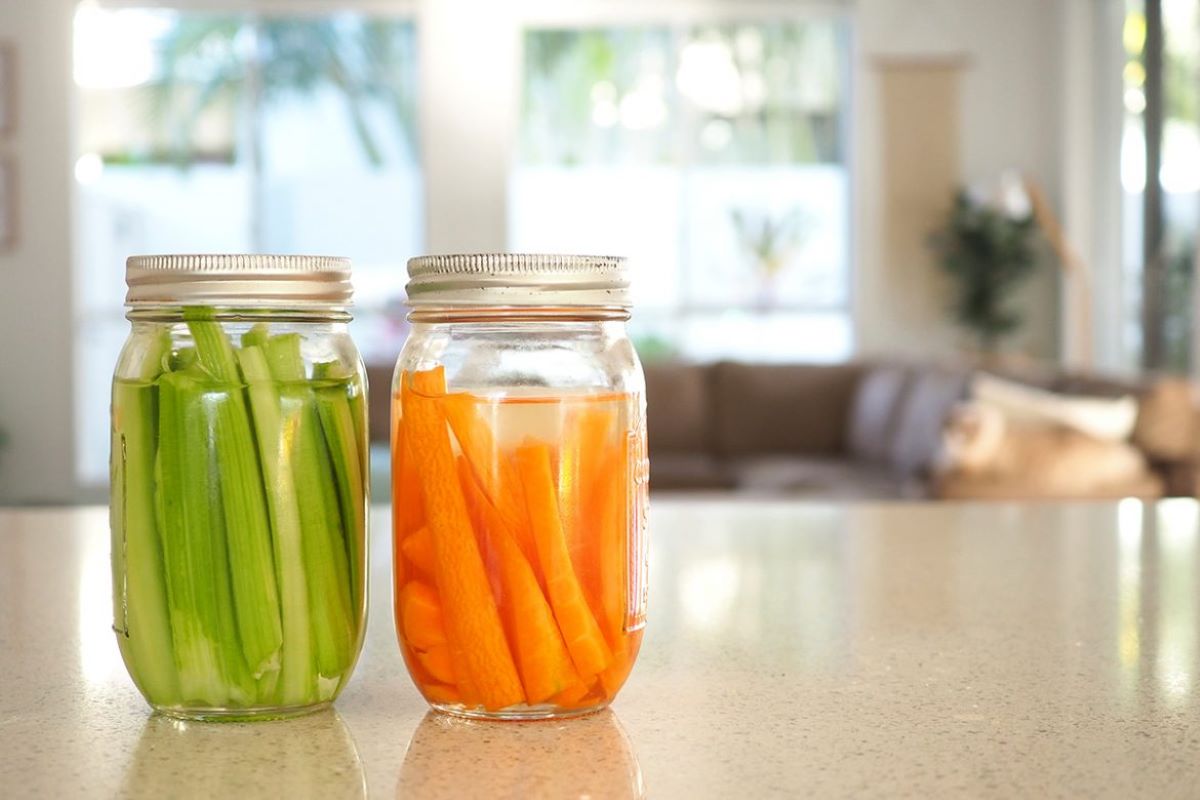

0 thoughts on “How To Store Carrots In The Fridge”